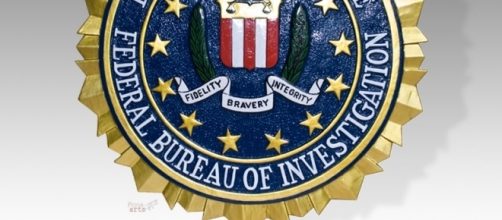During a photo op at the Oval Office on Monday with Crown Prince Muhammad bin Zayid Al Nuhayyah, President Trump told reporters that their search for a new Fbi Director was "moving rapidly."
The move to replace James Comey has been as controversial as the events that freed up the position -- the firing of FBI director James Comey -- with Democrats saying they would refuse to vote for Trump's pick until a special prosecutor was assigned to take over the investigation which they now feel has been compromised. On Wednesday, the Department of Justice (DOJ) finally named that special prosecutor to be former FBI director Robert Mueller.
Details of the firing and the response that followed are further explained in a Blasting News article about the fallout.
Recused but Sessions still involved
Attorney General Jeff Sessions was forced to recuse himself in early March from the Trump-Russia investigation that was being conducted by the FBI because of his involvement with Trump's campaign last year. Ironically, however, Sessions is still actively taking part in replacing James Comey by reaching out and interviewing candidates for the job along with his deputy Rod Rosenstein. Comey was fired on May 9 for reasons that seem to be centered around him not ending his investigation on the Trump campaign over their possible connections to Russian officials.
Democrats have expressed anger over Jeff Sessions' involvement in conducting interviews saying that he is breaking his promise to recuse himself from the investigation. Despite his recusal, during last Wednesday's press briefing, the White House deputy press secretary Sarah Huckabee Sanders said that Sessions should be involved in selecting the next FBI director. In the press briefing, she stated that the responsibility of the FBI director should go beyond and have a much broader role than the Russia investigation. Her statement appeared to target the press for their endless focus on their investigation, as well as targeting the former FBI director for not ending it sooner and to make it clear as to what they expect from whoever they pick.
Comey targeted for removal/replacement
After James Comey had been fired, he had just completed a hearing with the Senate Judiciary Committee on May 3, which the President said was the earliest he had considered firing Comey. It's been noted by critics that if he were thinking about firing the FBI director for a week, then why did the administration not have a replacement ready? This also adds to suspicions that the decision was spontaneous.
The DOJ reportedly started interviewing the following candidates on Wednesday after James Comey had been fired:
- Michael Anderson, director of the FBI in Chicago.
- William Evanina, national counterintelligence executive from the Office of the Director of National Intelligence was also interviewed, but it's said that he doesn't meet the minimum qualifications of already being confirmed by the Senate for his current position. According to reports, the mandate for confirmation for the Senate did not exist until 2015 after he had already been appointed.
- Paul Abbate who is already with the bureau's criminal and cyber branch,
- Adam Lee who runs the FBI's field office in Richmond, Va.
In their search, Michigan Republican ex-rep Mike Rogers had been considered, district judge Henry Hudson from the Eastern District of Virginia, Frances Townsend who is a former homeland security adviser from the Bush administration and a judge for the New York State Court of Appeals Michael J.
Garcia.
Texas Republican Senator John Cornyn, Trey Gowdy of South Carolina and Merrick Garland had either expressed their interest when Sessions reached out to them before withdrawing or in the case of Garland, they turned it down immediately. Acting director Andrew McCabe has also been considered.
Activating new director
McCabe could take Comey's place for a longer term, however, much like the former head of the Bureau, Donald Trump has been critical of McCabe over the FBI's investigation of Hillary Clinton saying that McCabe's wife had a connection with a donor who gave to the Clinton campaign, pinning that as the reason for why they hadn't indicted Clinton.
Last Thursday, James Comey was expected before the Senate Intelligence Committee who are one of the several bodies that are running an investigation on Trump's connections to Russian officials.
Andrew McCabe replaced Comey at the hearing instead, which was more about worldwide threats as opposed to discussions about the Trump-Russia investigation.
Pete Williams of NBC News was on Washington Week on Friday where he wondered if the DOJ was going to leave the interim director McCabe in place until the investigation was complete before they likely replaced him, due to the chance that the administration's pick might be held up in Congress.


